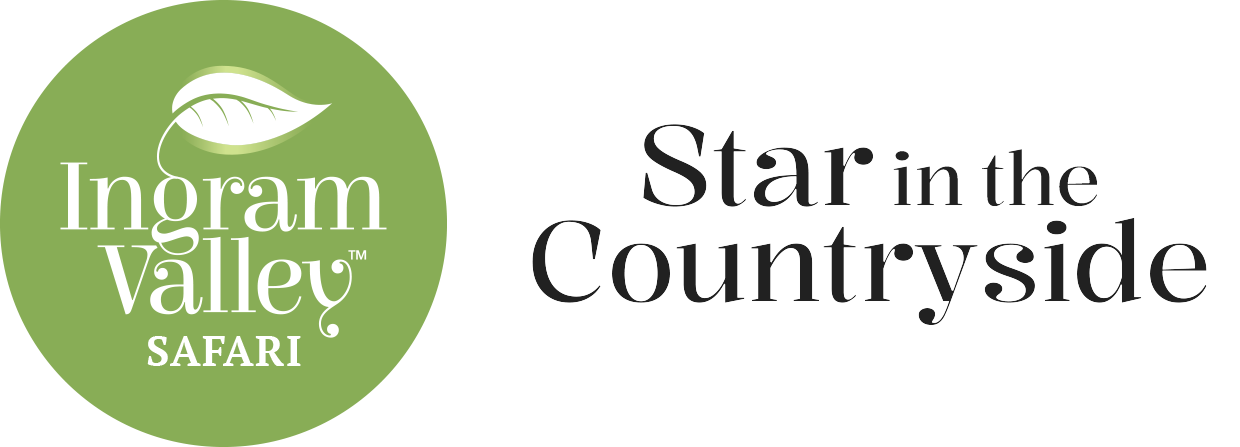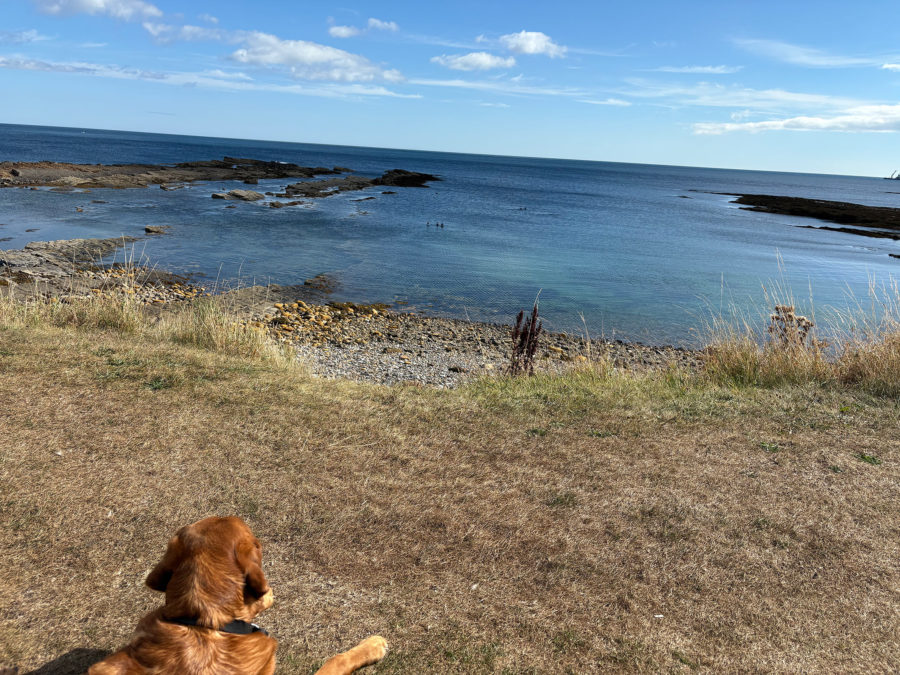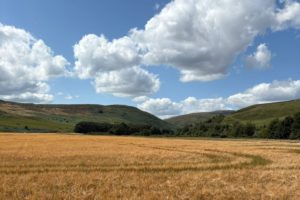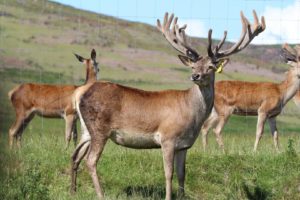Did you know that Northumberland is the home to one of the last high quality seagrass reserves in the North East of England near the Holy Island. Recently members of the Ingram Valley Farm team have been doing their PADI training so they can study the North Sea in greater detail and as we continue our work with Coastal Custodian: https://www.coastalcustodian.co.uk/post/environmental-causes
Our recent Padi training with Divecor at Beadnell: https://www.padi.com/dive-center/united-kingdom/divecor-adventures-cic/
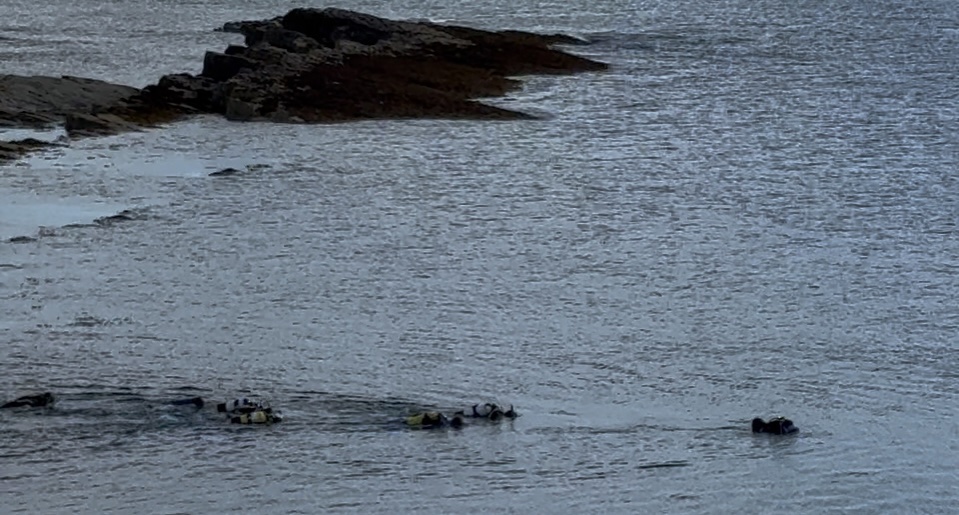
While we on the farm focus on our land-based meadows it is important to take time to also focus on vital underwater meadows which help prevent coastal erosion, improve the quality of the water and the meadows are vital for juvenile fish. The meadows contribute to blue carbon capture and are great food sources for birds.
While different species of seagrass our under threat worldwide projects here in the North East like Stronger Shores are studying seagrass and developing methods for restoration.
Find out more about seagrass in this blog post. Visit the Stronger Shores website.
Newcastle University are also working on seagrass projects here in the North East and also on the other side of the world. Some of our team at Ingram Valley Farm Safaris hope to go and visit Australia soon and this Summer Ingram Valley Farm was lucky enough to meet our ‘Star of September’ Zara Fawcett who is a student at Newcastle University and has just had a placement year in Australia. Zara tells us more about her project below:
BSc Hons Environmental Science w ISY Natural and Environmental Sciences
Reviving Underwater Meadows in Australia
Seagrass: think wildflower meadows, but in the ocean. It provides incredible marine habitats which cover sheltered coastal waters worldwide. Being the only flowering plant that lives fully immersed in water, makes seagrass particularly unique. Posidonia Australis is a species of seagrass endemic only to the Southern half of Australia. In New South Wales, and in Sydney’s surrounding area, it is struggling to survive, and is now endangered.
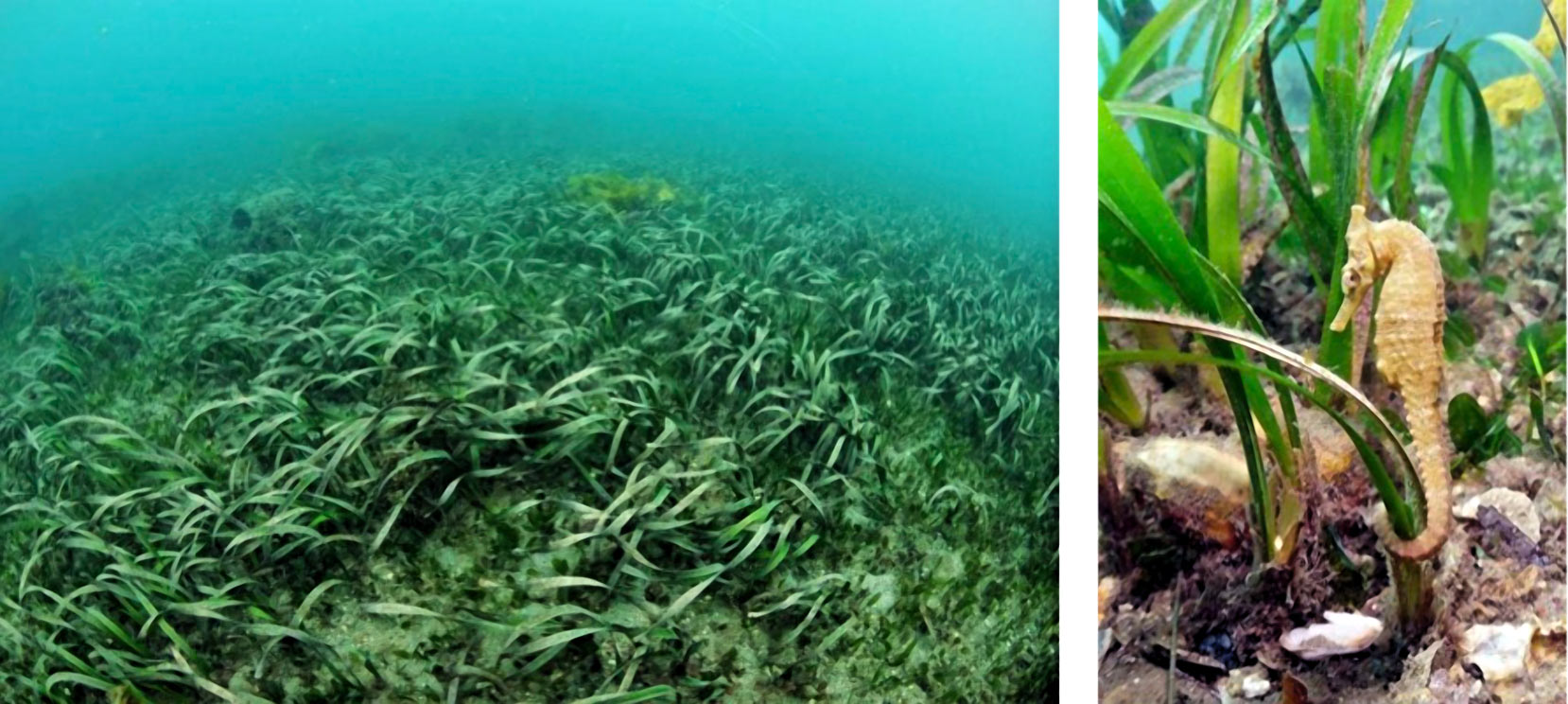
https://www.operationposidonia.com/the-problem-1
The Positives of Posidonia – Why is it so important?
Posidonia Australis is vital for so many reasons, and not just to make the sea more appealing to snorkellers. These bright green, leafy plants primarily act as a nursery for juvenile marine life needing protection. It also stabilises the sediment protecting shorelines from erosion and storm damage and is a significant carbon sink.
Why is it disappearing?
Unfortunately, where it thrives is also often where boats are moored. Anchors, traditional moorings, and boat use have ripped up this beautiful habitat and leave scars on the sea floor. Posidonia is slow growing and therefore, slow to recover. Pollution, water quality and coastal development have also considerably contributed to this degradation.
Operation Posi
Lead by Sydney Institute of Marine Science, which is fore fronted by the 4 major universities of Sydney, Operation Posidonia was founded within the larger goal of Project Restore. Operation Posidonia aims to restore seagrass seascapes in NSW.
Replanting the seagrass is aided by volunteers, researchers and citizens who collect seagrass with intact roots which can then be replanted into areas it has been lost. Once replanted, the seagrass has a 50-70% success rate!1 To avoid the problem repeating itself, traditional moorings are replaced by environmentally friendly moorings, so the chains aren’t disturbing the sea floor.
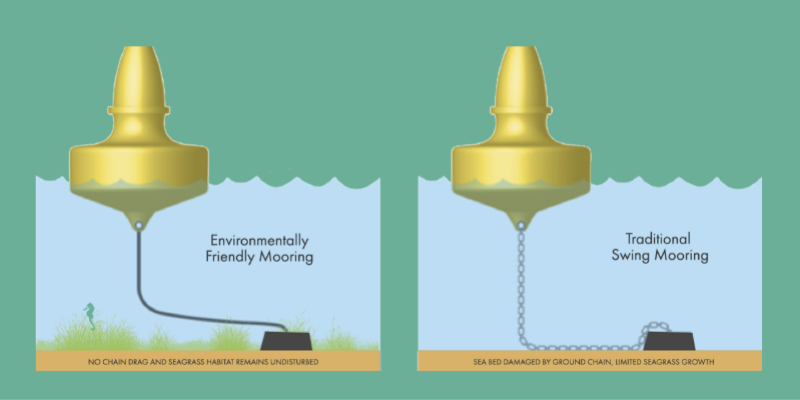
https://www.operationposidonia.com/the-solution-3
I was lucky enough to volunteer for a week in Merimbula, NSW, processing seagrass (measuring it, looking at its health, pigmentation, necrosis) for a PhD student last November. The project aims to understand the genetic composition of Posidonia in areas where the seagrass is still thriving. This is especially important in understanding genetic resilience in the future when it comes to issues like climate change. It also ensures genetic diversity in the replanted seagrass.
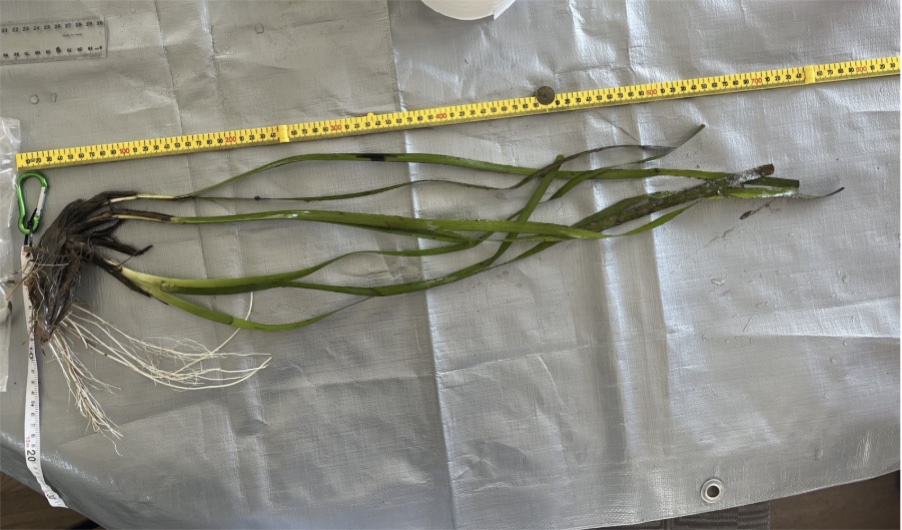
It is estimated seagrass meadows are being lost at a rate of 7% annually worldwide 2, a loss we can’t afford. They are vital to ecosystems globally and the issue needs greater citizen awareness and support. Hopefully with better mooring systems and more research coming out in the future, Operation Posidonia can continue to succeed in its mission.
Websites/References to check out for more info:
Project restore: https://projectrestore.sims.org.au/ 1
Operation Posidonia: https://www.operationposidonia.com/
SIMS: https://sims.org.au/
UK seagrass projects: https://www.projectseagrass.org/
Out of the Blue: The Value of Seagrasses to the Environment and to People. UN Environment Programme: https://www.unep.org/resources/report/out-blue-value-seagrasses-environment-and-people 2
A new website detailing the research on the mentioned PhD study will be coming soon! Watch this space!
